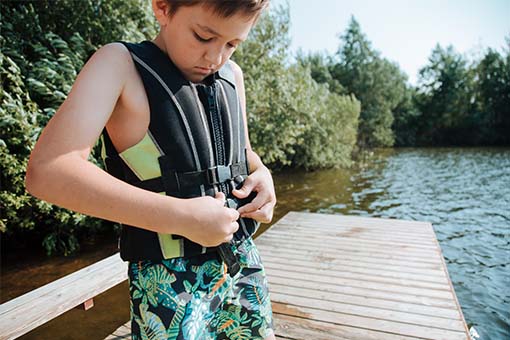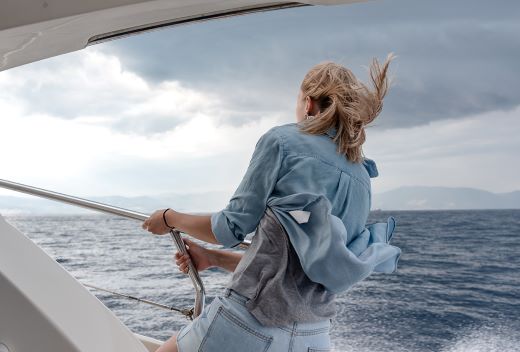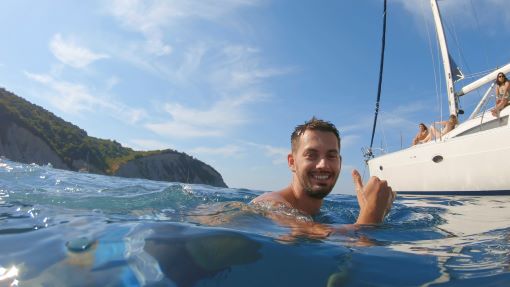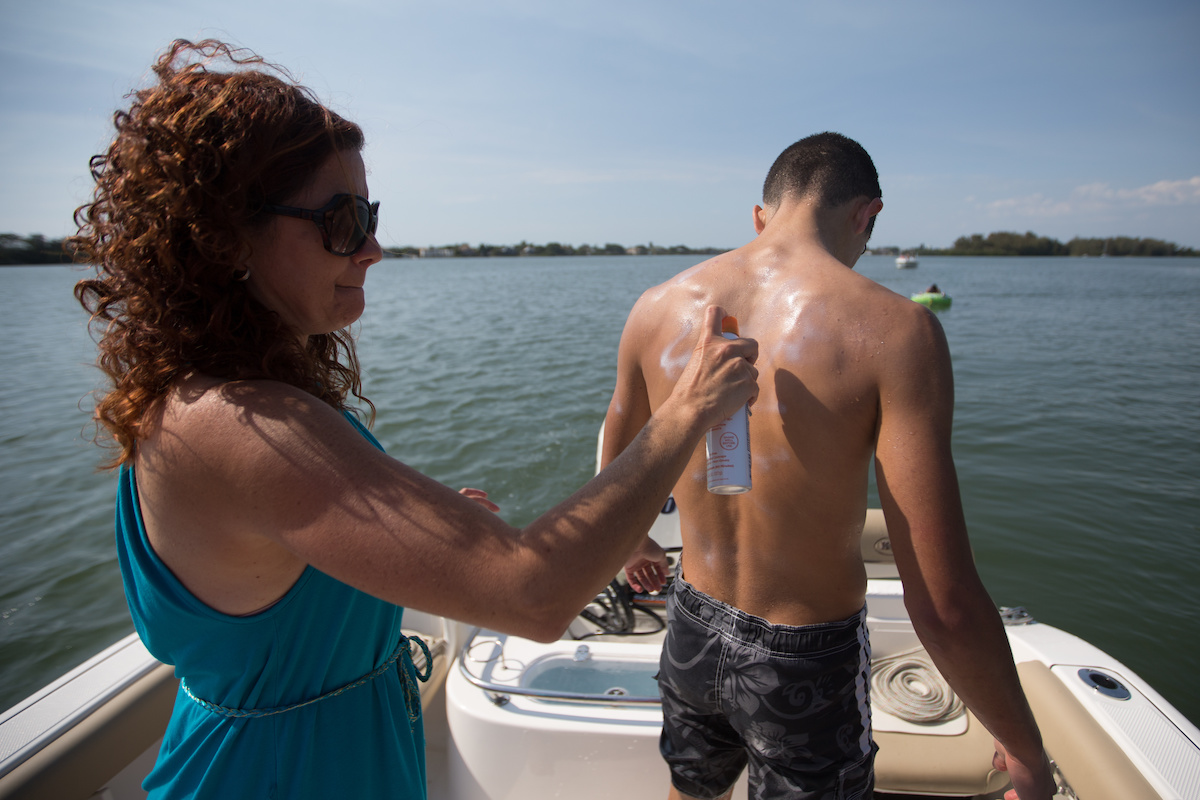Attention boaters: National Safe Boating Week is right around the corner, taking place May 17-23, 2025. Keep reading to learn more about National Safe Boating Week and how you can stay safe on the water.
What Is National Safe Boating Week?
National Safe Boating Week is dedicated to promoting the safety of all boaters. It’s endorsed by the National Safe Boating Council, a nonprofit dedicated to creating a safe recreational boating experience for everyone.
Safe Boating Campaign Safety Tips
During National Safe Boating Week 2025, we encourage all recreational boaters to brush up on these safety tips:
1. Wear Your Life Jacket
It’s paramount that everyone on board has a properly fitting, United States Coast Guard-approved life jacket.
It doesn’t matter if you’re going for a casual cruise or wakeboarding; accidents happen. Wear your life jacket, and ensure your fellow passengers do the same!
2. Take a Boating Safety Course
Whether you’re a first-time boater or a seasoned pro, taking a boating course is always a good idea.
From learning how to operate your boat to navigating in inclement weather conditions, there are so many reasons to take a course.
3. Know Your State’s Boating Laws
Every state has boating laws that all boaters must follow. If you don’t, violations result in ticketing, fines, or jail time. Even worse, you could put yourself or other boaters at risk. Therefore, it’s essential that you familiarize yourself with your state’s boating laws before heading out on the water.
4. Keep an Eye on the Weather
As you probably already know, certain conditions are ideal (and not-so-ideal) for launching a boat. Check the weather forecast before heading out on the water, and be mindful that conditions change quickly.
Learn More: Weather Safety Tips for Boaters
5. Prepare Your Boat
Before boating season begins, schedule a Vessel Safety Check with your local U.S. Coast Guard Auxiliary or U.S. Power Squadrons. Every Vessel Safety Check is free of charge.
Read Next: Boat Trip Checklist
6. Follow Navigation Rules
Just like roadways, there are rules of the water. Generally, these include rules such as:
- Operator’s responsibility
- Maintaining a proper lookout
- Traveling at safe speeds
- Knowing how to cross safely
- Meeting head-on
- Handling overtaking situations
7. Never Drink While Operating a Boat
Never drink and operate a boat. Boating under the influence of alcohol or drugs is illegal and results in tickets, fines, and possible jail time. Alcohol affects judgment, vision, balance, and coordination, which increases the likelihood of boating accidents.
Read Next: How to Celebrate Safely on a Boat
8. Beware of Carbon Monoxide Poisoning
Gasoline-powered engines — including onboard generators — produce carbon monoxide. And as you probably already know, this colorless, odorless gas kills people who inhale too much of it.
So, before embarking on your boating excursion, remember take the following steps:
- Verify that you have a properly working carbon monoxide detector.
- Refrain from blocking exhaust outlets.
- Anchor at least 20 feet away from boats running a generator or engine.
9. Create and Share Your Float Plan
Before embarking on your excursion, file a float plan with someone you trust. Doing so gives you peace of mind that someone can find you if something happens while you’re on the water.
Learn More: How to Create a Float Plan
10. Pack Communication Devices
Before your boat trip, confirm that you have at least two communication devices in case of an emergency. These devices include:
- Emergency position indicating radio beacons (EPIRB)
- Satellite phones
- Personal locator beacons (PLB)
- VHF radios
Your Guide to All-Things Boating
Ready to begin the 2025 boating season? Check out our boating blog for more safety tips, ownership hacks, maintenance guides, and other boating inspiration.



